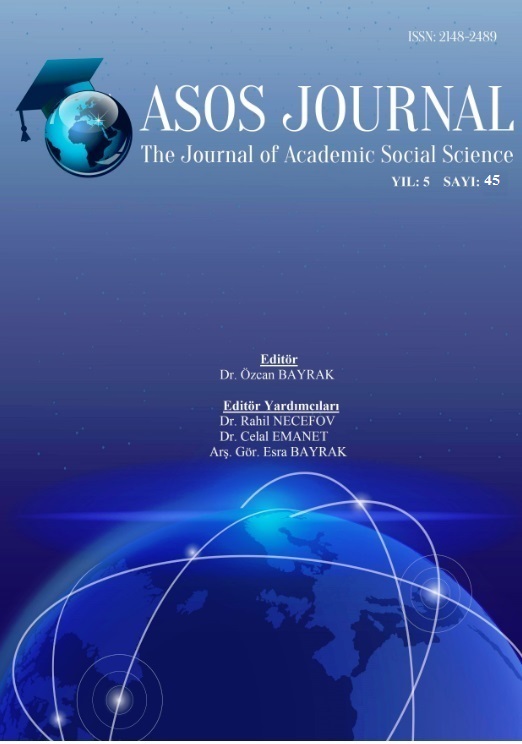Author :
Abstract
Meme kanseri karmaşık duygusal süreçlerin yaşanmasına neden olup kadınlarda en sık rastlanılan kanser türüdür (Tuncer, 2008). Bu çalışmanın amacı; meme kanserli hastalarda kaygıyı tanımlamak ve kaygıyı oluşturan faktörleri belirleyerek niteliksel görüşme yöntemiyle Meme Kanserine İlişkin Anksiyete Ölçeği oluşturmaktır. Çalışmaya 34 meme kanseri tanısı konmuş kadın hasta alınmıştır. Veri toplama araçları araştırmacı tarafından hazırlanan sosyodemografik bilgi formu ve problem merkezli niteliksel görüşme yöntemi (Witzel, 2000) ile alınan bilgilerdir. Yarı yapılandırılmış görüşme tekniği olan “problem merkezli görüşme” tekniği kullanılmıştır. Yapılan görüşmeler döngüsel yapı sökümü yöntemiyle analiz edilmiştir. Bu analiz sonucunda kadınların meme kanseri deneyimlerine ilişkin ortak algıları çıkarılmıştır. Yapılan niteliksel görüşmeler sonucunda hastalar tarafından tekrarlanan ifadeleri barındıran bir tablo oluşturulmuştur. 21 ifadeden oluşan üç alt ölçekli tablo, kadınlık imajı, cinsellik, aile ve annelik; ölüm ve gelecek korkusu; suçluluk duygusu ve öz değer gibi konuları kapsamaktadır. Çalışmanın sonucunda elde edilen tablonun en az 200 hastaya doldurularak faktör analizinin yapılıp bir ölçek haline getirilmesi gerekmektedir. Bu çalışma genelleme için yeterli değildir, ancak gelecek çalışma için (tablonun faktör analizinin yapılıp ölçek haline getirilebilmesi için) zemin oluşturmaktadır. Onkoloji servislerinde böyle bir ölçeğin kullanımı psikolojik desteğe ihtiyaç duyan hastaların hızlı bir şekilde gerekli yerlere yönlendirilmelerini sağlayacaktır.
Keywords
Abstract
Breast cancer is the most common form of cancer among women which causes complicated emotional processes (Tuncer, 2008). The goal of this study is to define anxiety among patients with breast cancer and to create an Anxiety Scale Regarding Breast Cancer by specifying the factors which creates anxiety using the qualitative interview method . 34 women diagnosed with breast cancer were included in the study. Data collection tools were socio-demographic questionnaire prepared by the researcher and the information obtained by the problem -centered qualitative interview method (Witzel, 2000). The semi–structured interview method, “problem-centered interview (PCI)“ is used. Interviews are analyzed by circular deconstruction method . As a result of the analysis, common issues related to women’s breast cancer experiences are revealed . The qualitative interviews resulted in a table consisting of repetitive phrases used by the patients. The table consists of 21 phrases including topics such as; image of femininity, sexuality, family and motherhood, fear of death and future; feelings of guilt and self-esteem. The table which is achieved as an outcome of the study, is required to be filled by at least 200 patients then a factor analysis should be conducted and made into a scale. This study is not sufficient for generalisation, however, it forms a basis for further research. Application of such a scale at oncology services will enable the patients who need psychological support to be directed to essential places urgently.





